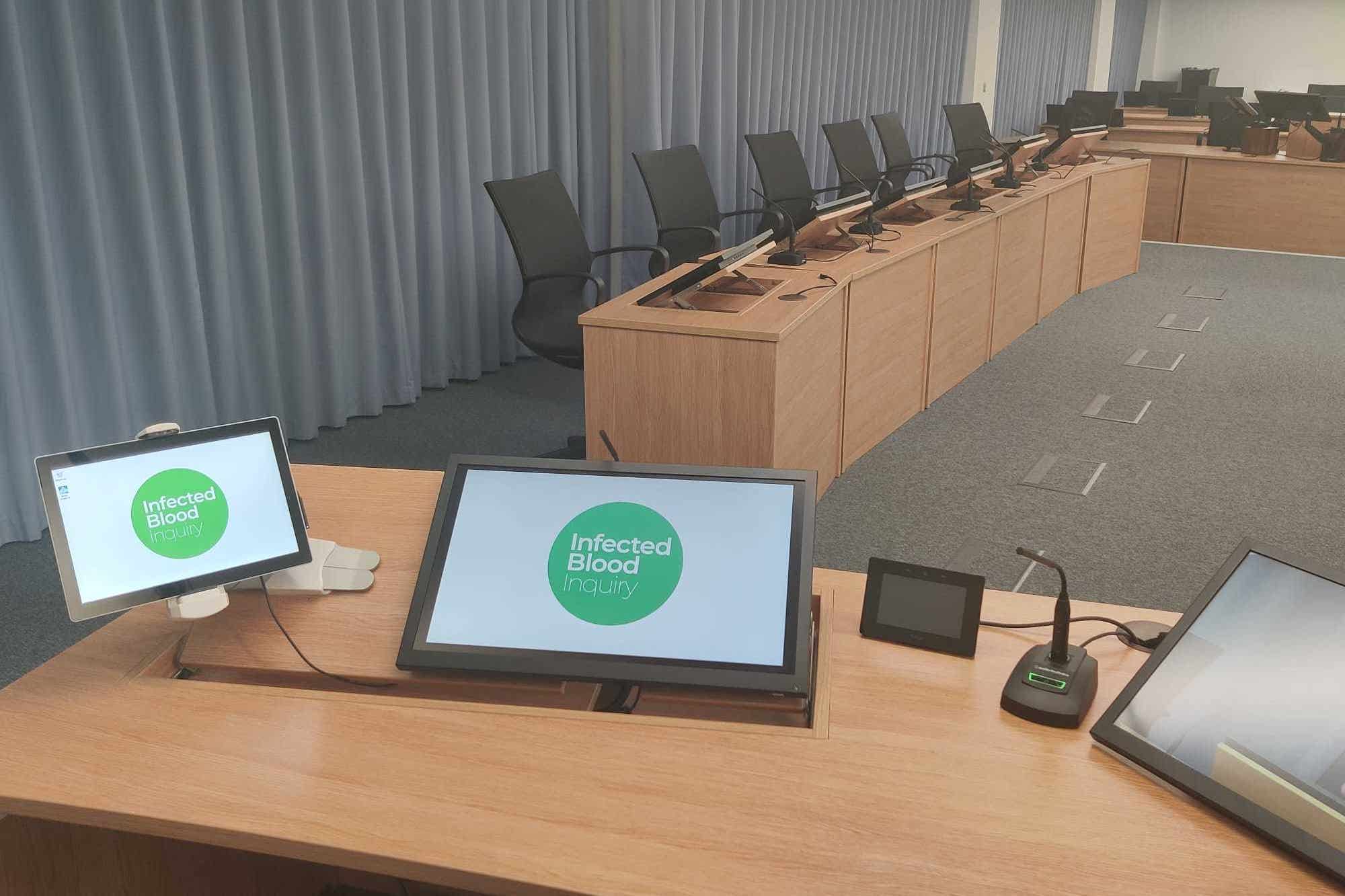Government owes ‘moral responsibility’ to infected blood victims, inquiry told
The Infected Blood Inquiry heard closing submissions made on behalf of the Government on Wednesday.

The Government has said interim compensation payments of about £400 million show it accepts its “moral responsibility” to help victims of the contaminated blood scandal, an inquiry has heard.
Eleanor Grey KC, for the Department of Health and Social Care (DHSC), delivered a closing statement to the Infected Blood Inquiry on Wednesday afternoon.
She hailed the “important and salutary” work of the inquiry and said it has “given a powerful voice” to patients harmed by contaminated blood treatments and to their loved ones.
In 2017, then-prime minister Theresa May ordered the public inquiry into what she called an “appalling tragedy which should simply never have happened”.
An estimated 2,400 patients died after being infected with HIV and Hepatitis C through contaminated blood products in the 1970s and 1980s.
Thousands of adults and approximately 380 children received infected blood products or transfusions during treatment by the NHS, the inquiry has heard.
Most of those involved had the blood-clotting disorder haemophilia and were given injections of the US product Factor VIII.
Victims have called for a detailed apology from the Government for its handling of the scandal and have urged it to implement recommendations in an independent report by Sir Robert Francis, which set a framework for how victims could be compensated.
In October 2022, the Government said thousands of victims of the infected blood scandal would receive interim compensation payments of £100,000 by the end of the month.
Ms Grey said about £400 million had been paid out by the end of October 2022.
We had hoped that those efforts, together with the further ongoing work, represented visible and tangible evidence going beyond mere words of the sincerity of those apologies and the desire to do what can be done to give some real and practical assistance and redress to those who have suffered
She added: “The financial payments and commitments that have been made to date, we suggest, represent, tangible proof of the acceptance, made publicly on a number of occasions, that the Government owes a moral responsibility to those harmed through the receipt of NHS blood and blood products, prescribed or given to them by NHS doctors, nurses or other clinicians, and which proved to be infected by Aids or Hepatitis C.”
She said “apologies have been given on several occasions over the years” and said Cabinet Office Minister Jeremy Quin had in December 2022 confirmed the Government accepted Sir Robert’s view that there is a moral case for compensating victims.
She added: “We had hoped that those efforts, together with the further ongoing work, represented visible and tangible evidence going beyond mere words of the sincerity of those apologies and the desire to do what can be done to give some real and practical assistance and redress to those who have suffered.
“It may be that the submissions heard yesterday suggest that these efforts, including the acceptance of moral responsibility and the payment of interim compensation, have done little to mitigate the damage caused by suffering over the years.”
The DHSC’s written closing submissions to the inquiry, dated December 16 2022, said: “Nothing in (its closing arguments) should be taken to detract from the acceptance in opening oral submissions that ‘things happened that should not have happened’; ‘that things went wrong’. Or from the unreserved apology for the fact that this was so.”
But Des Collins, senior partner at Collins Solicitors and adviser to 1,500 victims of the infected blood scandal, claimed Ms Grey’s closing remarks on Wednesday were “brief and frankly underwhelming”.
It is astonishing that the Government continues to peddle the 'hindsight' line, when the inquiry heard evidence of multiple opportunities for medics to act on concerns, yet they failed to do so
In a statement provided after the hearing, he added: “It is astonishing that the Government continues to peddle the ‘hindsight’ line, when the inquiry heard evidence of multiple opportunities for medics to act on concerns, yet they failed to do so.
“Even worse, we learned there was a deliberate and persistent policy of denial and cover up by civil servants at the Department of Health.
“The Government hasn’t updated its stance since the inquiry started, beyond a general admission that ‘things went wrong’.
“It is extraordinary that they apologise but can’t say what for.
“My clients want and deserve a full and explicit apology and an acknowledgement of what went wrong and when.
“Only by admitting the substance of mistakes can we as a society learn from this tragedy and only by a proper admission of mistakes and accepting responsibility, can those who have suffered achieve any resolution.”
Jason Evans, founder of campaign group Factor 8, said: “Having sat through the last four years of evidence with the rest of us, government lawyers must know, they too must have seen the obvious truth that you shouldn’t enroll patients into human trials without their consent and infect them with Hepatitis and HIV.
“People have travelled from around the country to London for a full and proper apology; what they’ve been given is total disrespect.”
Bookmark popover
Removed from bookmarks